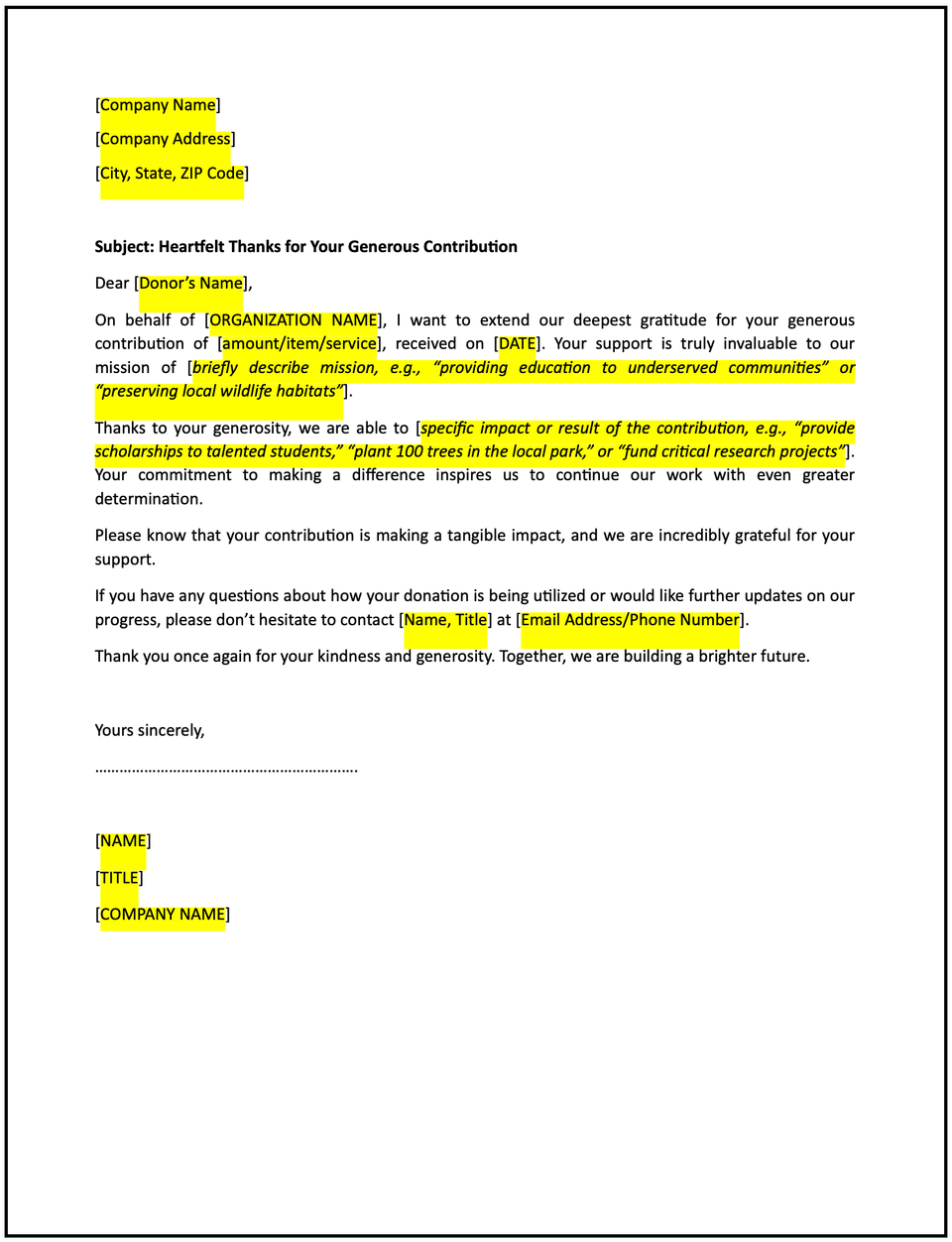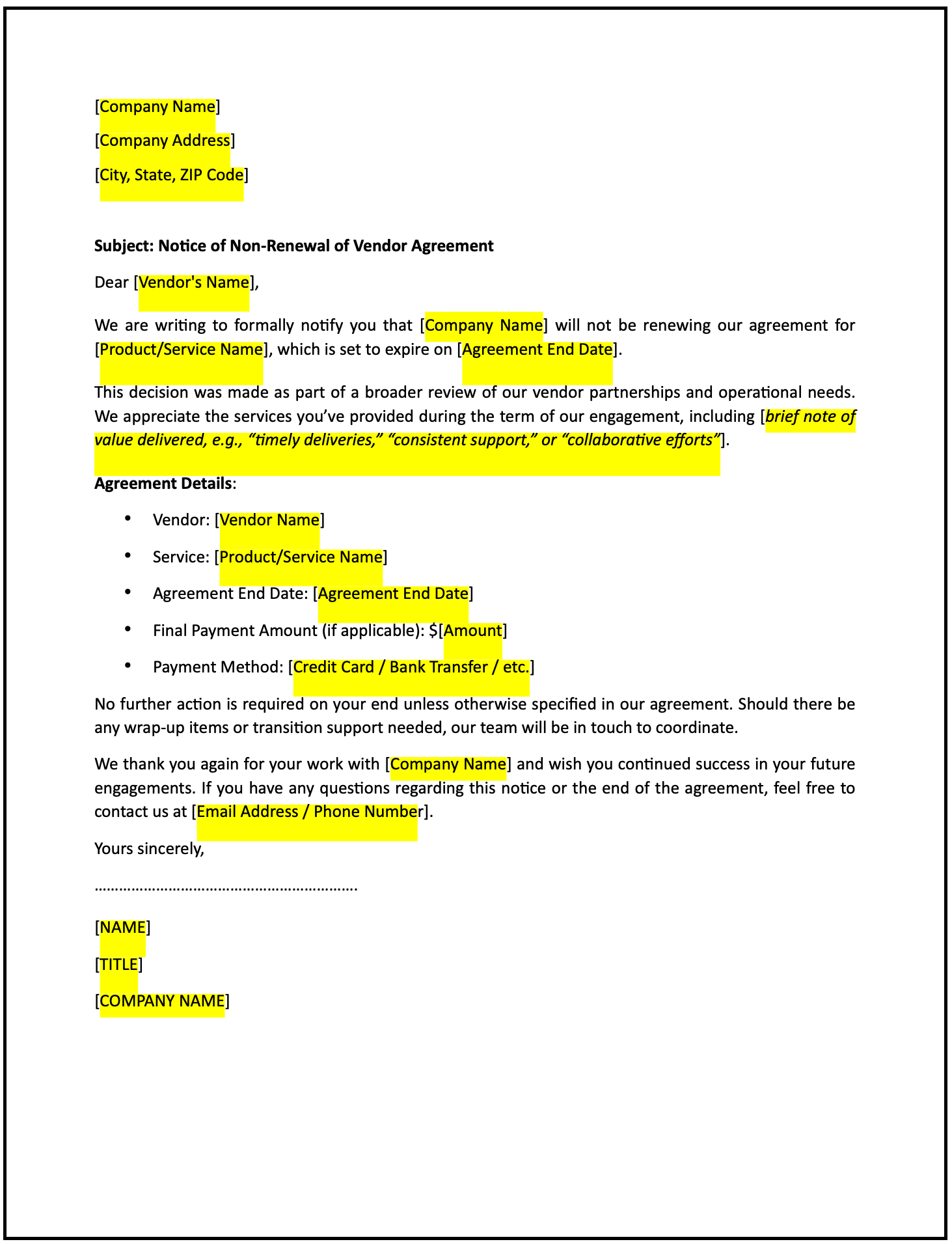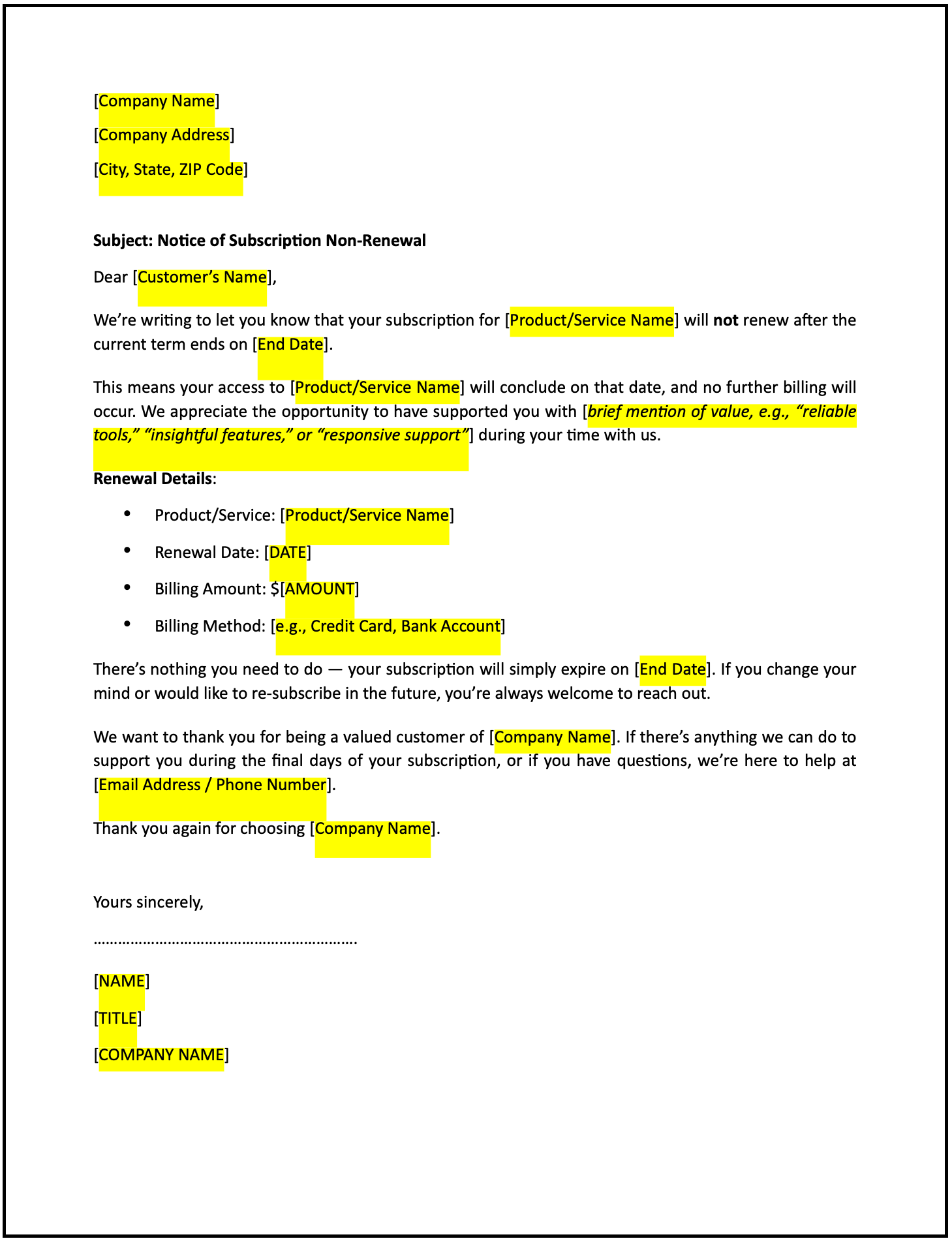Letter to thank donors for their contribution: Free template

Letter to thank donors for their contribution
A letter to thank donors for their contribution is a formal communication used to express gratitude to individuals or organizations that have provided financial or material support. This letter recognizes the donor’s generosity, highlights the impact of their contribution, and reinforces the relationship for future engagement.
How to use this letter to thank donors for their contribution
- Open with an introduction: Address the donor respectfully and express sincere appreciation for their contribution.
- Confirm the donation: Specify the donation amount, the date it was received, or the nature of the support provided.
- Highlight the impact: Explain how their contribution is being used to support your mission or initiative, and provide specific examples if possible.
- Personalize the message: Reference the donor’s specific role or involvement, emphasizing their unique contribution to your cause.
- Reassure the donor: Emphasize the difference their generosity has made and how it aligns with your organization’s goals.
- Offer further engagement: Invite the donor to stay involved through newsletters, events, or updates on the project they supported.
- Maintain a professional yet warm tone: Ensure the letter is clear, heartfelt, and focused on expressing gratitude.
- Here’s how it helps:Provide contact information: Include details for the donor to reach out with questions or discuss future opportunities to contribute.
Benefits of using a letter to thank donors for their contribution
This letter ensures a structured and professional way to express gratitude while fostering trust and long-term relationships. Here’s how it helps:
- Strengthens relationships: Acknowledging donations reinforces trust and loyalty with your donors.
- Reflects professionalism: A well-crafted letter demonstrates respect and appreciation for the donor’s support.
- Encourages continued support: Highlighting the impact of their contribution fosters a sense of fulfillment and future engagement.
- Builds transparency: Sharing how their donation is used reinforces trust and accountability.
- Enhances donor satisfaction: Prompt and genuine acknowledgment makes donors feel valued and appreciated.
Tips for writing an effective letter to thank donors for their contribution
- Be specific: Clearly outline the donation details, including the amount or nature of the contribution and its impact.
- Use warm, professional language: Maintain a tone of gratitude and respect to make the donor feel appreciated.
- Personalize the message: Reference the donor’s specific involvement or connection to your cause.
- Highlight the benefits: Emphasize how their support has positively affected your mission or community.
- Include actionable steps: Share how they can stay involved or receive updates on the initiative they supported.
- Keep it concise: Focus on the key points while ensuring the tone is heartfelt and engaging.
Frequently asked questions (FAQs)
Q: What details should I include in this letter?
A: Include the donation amount, date, its purpose, and a heartfelt message of gratitude.
Q: Should I personalize the letter?
A: Yes, addressing the donor by name and referencing their specific contribution adds a personal touch.
Q: Who typically sends this letter?
A: Development officers, fundraising teams, or organizational leadership typically send this letter.
Q: How formal should this letter be?
A: The tone should be professional yet warm, focusing on gratitude and relationship-building.
Q: When should this letter be sent?
A: Send the letter promptly after receiving the donation to demonstrate attentiveness and appreciation.
Q: Can this letter include updates on the supported project?
A: Yes, providing updates strengthens the connection between the donor and the cause.
Q: Is acknowledgment from the donor required?
A: While not mandatory, inviting donors to provide feedback or remain engaged fosters ongoing collaboration.
This article contains general legal information and does not contain legal advice. Cobrief is not a law firm or a substitute for an attorney or law firm. The law is complex and changes often. For legal advice, please ask a lawyer.


